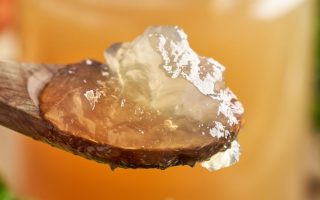When it comes to dog foods, flavors such as beef, cheese, bacon, and other meaty products are common.
However, seafood flavors are rarely common. This doesn’t mean dogs generally don’t or can’t enjoy seafood flavors.
Anything that smells pleasant and tastes good, a dog would readily devour.
In this vein, you may wonder—is it safe to feed your dog seafood?
Oysters are vitamin-packed nutrients and are nutritionally beneficial to humans.
While seafood can be a great addition to a dog’s diet, can dogs eat oysters? Are oysters good for dogs?
This article explores answers to these questions and more. Read on!
What are Oysters?
Oysters are sea creatures classified under the group of the Ostreidae family, a family of mollusks and other bivalves. [1]
Typically, oysters do have a hard, rough, rock-like shell and tender slimy body enclave in the protective wall of the shells.
Its body is not appealing with a mucus-like sight in its uncooked state.
As noted earlier, oysters are sea creatures and thus can be found in oceans around the globe, but more often in shallow waters and in colonies known as beds or reefs.
They feed by constantly filtering water over their gills and extracting nutrients, from food particles or algae floating in their water habitat.
Their hard shell serves as a defense in the face of danger as they can quickly close up and be very hard to open up.
Can Dogs Eat Oysters?

Yes, dogs can eat oysters. They are a great source of Omega-3 fatty acids, protein, and other essential minerals such as iron, selenium, and zinc, which all play a key role in the general health of your pet dog.
They are completely safe for dogs to eat when prepared in a way that is safe for their consumption.
Oysters are low in calories and contain vital nutrient components that would be beneficial to dogs.
Proteins present in oysters are helpful.
Omega-3 improves the general health of your dog, decreases any form of inflammation, and minimizes the risk of your dog falling sick.
Selenium promotes thyroid health.
Below is a breakdown of the nutrient components of 25 grams of oysters.
| Nutritional Info | Amount |
|---|---|
| Calories | 41 |
| Fat | 1.2g |
| Cholesterol | 25mg |
| Sodium | 53mg |
| Potassium | 76mg |
| Carbohydrates | 2.5g |
| Protein | 4.7g |
| Vitamin A | 2.4% |
| Vitamin C | 5.3% |
| Calcium | 0.3% |
| Iron | 13% |
Are Oysters Good For Dogs?
Oysters have a lot to offer dogs. Including this seafood as part of your dog’s diet will provide a great nutritional boost, and your pup will thank you.
Here are some health benefits of feeding oysters to your canine buddy.
1. Improve energy level
oysters are known to provide energy. If your dog is low on energy level, you should consider adding oysters to its diet.
Minerals in oysters also help govern a dog’s mood and behavior.
2. Strong muscles and joints
As dogs age, it is expected that their muscles and joints get weaker.
Feed oysters to your dog to improve your dog’s muscle strength and joints.
This seafood contains protein and zinc, which aid in efficiently strengthening these body parts.
3. Better immune system
Seafood like oysters improves the immune system and helps fight against common diseases and potentially harmful bacteria in a dog’s health system.
How to Prepare & Feed Oysters to your Dog

In feeding oysters to your dog, it is crucial you introduce this seafood to your pup gradually.
Most dogs have sensitive stomachs; therefore, a fast change in foods, especially a new food they’re eating for the first time, will likely result in stomach upsets.
Also, it is worthy to note that even though oysters are safe for dogs to eat, too much of them can cause health complications.
It is advisable to feed moderately to your furry friend. The quantity of oysters you are to feed your dog depends on its size and diet.
The quantity ideal for Labrador would be unsafe for a teacup Poodle.
To be on the safer side, it would be best to contact your vet to enlighten you on the quantity and number of times you should feed oysters to your dog.
Below is a step-by-step process to follow to safely feed oysters to your dog.
Step #1. Remove the oysters from their shell
While oysters are safe for dogs to eat, the shell is not. Hence, it would be best to break it off before serving your pet.
If your dog did eat oysters shell, take it to the vet for medical attention without delay.
Oyster shells can cause blockage in your dog’s intestine.
Step #2. Cook the oysters
Do not feed your canine buddy uncooked or raw oysters.
Cooking the oysters eliminates most foodborne bacteria and microorganisms that may be in the oyster.
You can plainly steam the oyster, grill, or roast it. Stay off of frying oysters you intend to feed your dog.
Frying oil contains an unhealthy amount of fat your dog does not need.
Step #3. Do not use spices or seasonings when cooking
When cooking oysters for your dog’s consumption, whatever method you opt for, either steaming or grilling, avoid adding spices or seasonings.
Cook the oyster plainly. Spicy ingredients are detrimental to dogs’ health as they contain harmful ingredients.
Tinned oysters are not the best choice to feed your pet dog.
As much as possible, try feeding your dog homemade oysters free from the spicy flavors and seasonings.
Are Oysters Bad for Dogs?
There are certain risks associated with feeding oysters to your pet dog.
Being aware of these risks before you start feeding oysters to your dog will help you be better prepared and know what to expect.
1. Allergies
It is possible that your dog may be allergic to oysters. If you are aware that your dog is allergic to oysters or seafood in general, best avoid it.
If you don’t know, it is advisable to ensure the oyster is properly cooked and fed to your pet in small quantities and watch for any allergic reaction.
2. Overfeeding
Your dog’s weight is important. To maintain a healthy weight in your pup, you do not want to feed it too much fat and calorie diet.
Although oysters are a healthy meal to feed your pet dog, too much consumption of this seafood will likely cause health problems as it does contain fat and calories.
3. Toxic bacteria
Being that oysters are filter feeders, they are likely to take in toxins that cannot be killed even by cooking and, when consumed, could make your pet sick.
To cut down on this risk, getting your oysters from cold and clean water is advisable.
How many oysters should a dog eat?
There is no specific number of oysters you should feed to your dog. Generally, it would help if you began with one or two.
It would be best if you visited a vet to help you determine the right amount of oyster you ought to feed your dog.
Can oyster shells make dogs sick?
Oyster shells are not safe for dogs to eat. They can cause blockage in the intestine.
Therefore, stay off it, and if you suspect your dog of having eaten oyster shells, contact your vet immediately.
Can dogs eat raw oysters?
No! Do not feed raw oysters to your dog. Raw oysters are more than likely to contain harmful microorganisms that are potentially harmful to your dog’s system.
Can dogs eat smoked oysters?
Smoked oysters are safe for your pup’s consumption as long as you don’t prepare them with seasoning or ingredients that are toxic to dogs.
Bottom Line: Can Dogs Have Oysters?
It is clear that dogs can eat oysters. As a recap, feed dogs clean and fresh oysters from cold, clean water.
If your dog is allergic to seafood, do not feed it oysters.
Also, if you are feeding oysters to your pup for the first time, introduce this meal slowly to it and always remember to feed in moderation.
You May Also Like:
Can Dogs Eat Roast Beef? What Experts Say
References:
[1] National Geographic: Oysters







